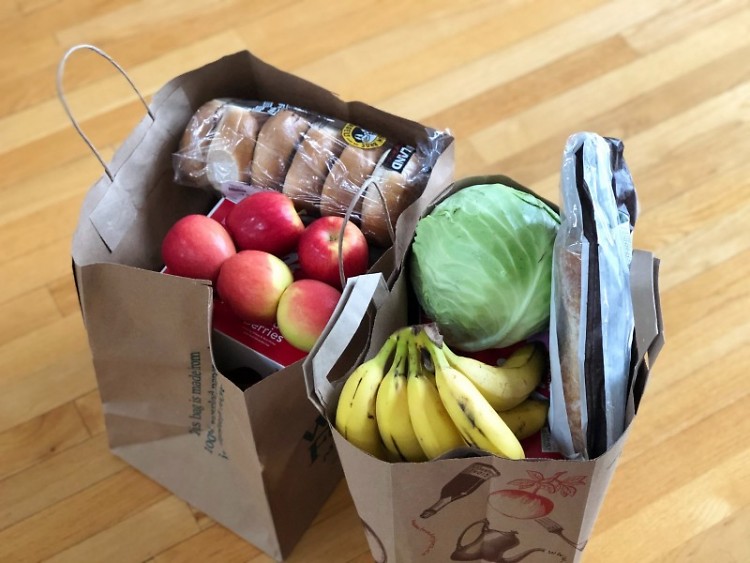As the pandemic descended upon us last year, I remember the eerily silent grocery shopping trips and the urge to stock up on comfort items (pasta!) for my family. I frantically scoured the internet for bean seeds and potting soil, suspiciously sold out from many retailers. And yes, I, too, had a sour dough starter on my countertop as yeast became in short supply. I donated to my local food bank, worried about those who suddenly lost their jobs. My recycling pile stacked up as the local recycling depot was closed until more was known on safety conditions. I heard about the boom local farmers were experiencing, Community Supported Agriculture shares snapped up more quickly than ever. I doom-scrolled about food workers getting sick or about food workers showing up in dangerous conditions while I had the privilege to stay home.
It seems our collective experience of the pandemic represented a widespread awakening to the existence of “the food system.” While in our dominant culture we tend to think about food on an individual level (my choices, what’s available to me, what I deserve) all of these choices take place in a larger system of availability, food chains, agriculture methods and variables, cultural expectations and other people’s lives. I think the precarity of the pandemic made us realize that perhaps our choices are more fragile than we thought, dependent on many variables that seem out of our control. The truth is most of us don’t eat without the systems in place that bring food from the field to our table.
Our food system is held together by many things but one of the tools we have in shaping the food system is policy. Policies help us make decisions, providing guidelines for how to shape the systems we have. Policies can represent the interests of some, benefiting some individuals or groups over others. But ideally, policies are informed by people and guided by common values. The Michigan Good Food Charter recommends the food system should be fair (no one along the production line is exploited), green (environmental & sustainable production), affordable (all people have access to it), and healthy (nourishing & allows people to thrive).
All of us have a place in the food system; some of us benefit and experience fewer challenges. Others do not experience much benefit from the current system. One in five Kent County families say they can’t buy or receive the healthy food they need. Farming can be a challenging, if not impossible, venture for many in the current climate. Further, only 1% of US farmland belongs to Black Americans (compared to 14% in 1920). Those who work at the 200 migrant camps in Kent and Ottawa Counties can experience harassment and compensation disputes while they are the ones who grow the fruits and vegetables we need and love on our tables. We also know that food production is currently a significant contributor to climate change (19-29% of emissions).
The history we know of the land on which we live is troubling: the livelihoods of the indigenous people of this place was severed upon the settlers arrival. The people of the Three Fires (the Odawa, Ojibwa and Potawatomi) were accomplished hunters, fishers, gatherers and farmers who were forcibly relocated, displaced or murdered. Our food system descends from a bitter past.
Many of us don’t exactly know where we fit or we feel uncomfortable knowing that our food system is rife with injustice and instability. Living on this land means that we inherit a past; Amanda Gorman invited us to step into the question of how we repair this past. We can start with imagining a food system that benefits not just some of us but all of us. What would it look like if our food system was fair, green, affordable and healthy?
There are 27 food policy councils across Michigan; Kent County is one of the counties without one. Until now. We invite those who want to gather, envision and advocate for a good food system in Kent County to apply to be a council member on the forming Kent County Food Policy Council. The time has never been more ripe.
Visit this link to apply to be a member of the council.
Visit our website for more information.
written by Janelle Vandergrift
The Rapidian, a program of the 501(c)3 nonprofit Community Media Center, relies on the community’s support to help cover the cost of training reporters and publishing content.
We need your help.
If each of our readers and content creators who values this community platform help support its creation and maintenance, The Rapidian can continue to educate and facilitate a conversation around issues for years to come.
Please support The Rapidian and make a contribution today.
